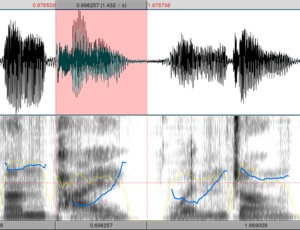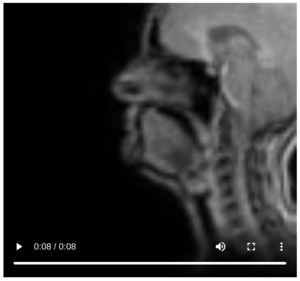Hacking Chinese Resources
Click one or more tags to show relevant resources. Follow @ChineseLinks on Twitter, to get notified about new resources!
Filter
16 resources found.
Focusing on tone pairs to improve your Mandarin pronunciation
When learning to pronounce tones in Chinese, it makes sense to focus on words rather than single syllables. Most words in Chinese are disyllabic and since practising these will also include to tone... Read more.
hackingchinese.com

Olle Linge – over 11 years
WaiChinese
Listen to native speakers, mimic the audio while recording, receive instant feedback on spoken phases. Then submit your recording to be evaluated by real native teachers. Read more.
waichinese.com

电猫 – over 10 years
Toward Better Tones in Natural Speech
This article describes the basics of way to teach tones that is different from the traditional way mainly in that the third tone is no longer described as a falling-rising tone (since that is rarel... Read more.
sinosplice.com

Olle Linge – over 11 years
Learning the third tone in Chinese (Hacking Chinese)
The third tone is an essentially low tone. The only time it's pronounced with a high element is in front of another third tone (when it turns into a second tone) and when in complete isolation (whi... Read more.
hackingchinese.com

Olle Linge – over 10 years
Using Audacity to learn Chinese (speaking and listening) (Hacking Chinese)
Audacity is a marvellous piece of software that allows you to record audio (yourself, other people or whatever is playing on your computer), mimic native speakers, edit and enhance the audio, as we... Read more.
hackingchinese.com

Olle Linge – over 10 years
Tones are more important than you think (Hacking Chinese)
Tones are more important than most people think. Just because native speakers reduce tones and speak quickly, it doesn't mean that you can do the same and get away with it. Don't be fooled by peopl... Read more.
hackingchinese.com

Olle Linge – over 10 years
A guide to Pinyin traps and pitfalls (Hacking Chinese)
My article about various common problems students have with Pinyin. These problems mostly exist because people read Pinyin as if it were a phonetic alphabet instead of a transcription system. Read more.
hackingchinese.com

Olle Linge – over 10 years
Mandarin Chinese Phonetics (Zein.se)
This is a simple and straightforward explanation of Chinese phonetics. I recommend it because it's not very complicated and (mostly) correct. I will try to write something myself later, but in the ... Read more.
zein.se

Olle Linge – almost 11 years
How to find out how good your Chinese pronunciation really is
Evaluating pronunciation needn't be hard, but many methods commonly used by teachers are deeply flawed, resulting in inaccurate error analysis. If we want to improve, we need to be clear about what... Read more.
hackingchinese.com

Olle Linge – about 11 years
John Pasden's complete tips on Chinese pronunciation (Sinosplice)
John Pasden has over ten years of experience teaching Chinese language, and a particular awareness of phonetic difficulties. This page gathers a number of posts on his website sinosplice about pron... Read more.
sinosplice.com

Julien Leyre – over 11 years
Chinese Pronunciation Wiki (AllSet Learning)
This newly launched site offers basic information about pronunciation, mostly things that should be in all beginner courses and textbooks but seldom are. Currently, the content is fairly limited, b... Read more.
resources.allsetlearning.com
Olle Linge – about 10 years
The Phonology of Standard Chinese by Duanmu San (Review on Hacking Chinese)
Duanmu San's "The Phonology of Standard Chinese" is by far the best introduction to Mandarin phonology that I'm aware of. It's mostly useful for people who like phonology or are already at an advan... Read more.
hackingchinese.com

Olle Linge – about 11 years
Pinyin Basics
This page describes the basics of how Pinyin works (i.e. how sounds are written, not necessarily how they are pronounced). It deals with problems such as when to add dots over u, false initials, om... Read more.
talkbank.org

Olle Linge – over 11 years
Language Power Struggles
This article discusses the language power struggle that most learners are very familiar with. "Given a conscious choice between a number of languages to use for interaction, speakers will naturally... Read more.
sinosplice.com

Olle Linge – over 11 years
Seeing Speech (articulation visualised through MRI and UTI scans)
This is a unique resource that shows how most common speech sounds are actually produced. Most other resources use animations and diagrams, but this is the frist I see which show actual MRI scans. ... Read more.
seeingspeech.ac.uk

Olle Linge – over 2 years
“China’s tower of babel” and the language/dialect question. Again. (Sinoglot)
What's a dialect? What's a language? Are Mandarin, Cantonese and Wu different languages or are they dialects of the same language. The answer is that there is no answer, it depends. This is a short... Read more.
sinoglot.com
Olle Linge – over 11 years